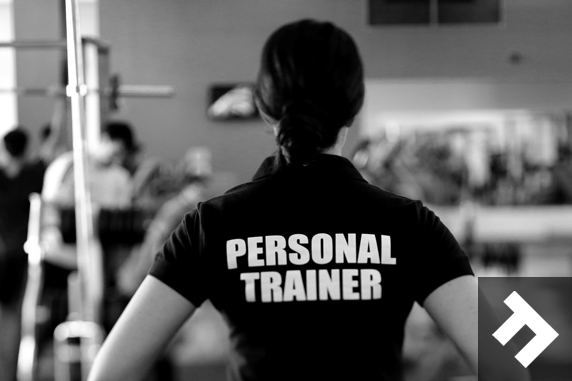Being reported for professional conduct could destroy your reputation as a personal trainer, which means you should take every possible step to avoid it. Here are some tips!
As a personal trainer, you’ll be well aware that you’re held to a specific code of ethical conduct which outlines how you’re expected to act when you’re working with your clients. Breaching that code of ethical conduct is likely to land you in hot water – potentially leading to a report of professional misconduct.
But what does professional misconduct mean with regards to being a personal trainer? And, more importantly, how can you be sure that you’re able to avoid committing it?
In this post, we’ll be providing answers to those questions, providing practical and actionable advice to any personal trainer who wants to make sure they’re working within the guidelines.
What is Professional Misconduct?
Generally speaking, professional misconduct is unethical or unprofessional behaviour that falls well short of the ethical or professional standards that are accepted in individual professions.
Personal trainers are held to accountability by the Code of Ethical Conduct for Personal Trainers. This code of conduct exists to ensure that personal trainers play a vital role in:
- Helping the health and fitness industry deliver its services
- Protecting clients and the public from harm
- Valuing all aspects of equality and diversity

Instances of misconduct can be separated into either minor misconduct or gross professional misconduct.
The list of things that could amount to minor misconduct are, for all intents and purposes, endless. Minor misconduct could relate to lateness, not following a superior’s instructions, or not correctly logging the hours you have worked.
Gross professional misconduct is considered to be much more serious and could lead to you losing your job as a personal trainer. Conduct could be considered to be deliberate or amount to gross negligence. Examples of gross professional misconduct could include damage to property, theft, physical violence, a serious breach of health and safety, and sexual misconduct.
What are the Potential Consequences of Professional Misconduct?
The potential consequences of professional misconduct as a personal trainer will likely vary depending on the action that was taken. This will determine whether it is deemed to be minor misconduct or gross professional misconduct.
Instances of minor misconduct aren’t likely to cost you your job as a personal trainer. In the majority of cases, minor misconduct will simply lead to verbal warnings and reminders. Note, however, that repeated behaviours and actions may begin to add up over time which could lead to more serious action taking place.
Gross professional misconduct, on the other hand, will certainly lead to serious consequences. There is the potential for you to be suspended, demoted, or dismissed altogether if you’re found guilty.

What Steps Can You Take to Avoid Professional Misconduct as a Personal Trainer?
Carefully Read the Code of Ethical Conduct for Personal Trainers
The first thing you need to make sure you do as a personal trainer is to fully read and understand the Code of Ethical Conduct. This document clearly outlines what is expected of you in your role, as well as advising on how you should act towards your clients and the wider personal training community.
If you understand the Code of Ethical Conduct, you’ll be able to contextualise your own behaviour and have a better understanding of what may or may not be considered acceptable.
Establish Effective Communication with Clients
When taking on new clients, or building up your relationship with existing clients, it pays to open up an effective line of communication. This will allow you to better understand what your client’s boundaries are, what they feel comfortable with and what sort of relationship they want to create with you.
Only by talking about these sorts of issues can you be sure that you won’t be overstepping the mark, or making your client feel uncomfortable. Without this, this could otherwise result in an unexpected claim for professional misconduct.
Treat Each Client Differently
No two clients are the same. If you’re an experienced personal trainer, you’ll probably already be well aware of that fact, but it’s worth remembering if you want to avoid the potential of facing a professional misconduct claim.
Don’t have a ‘one-size-fits-all’ approach when working with different clients, as what one client may feel comfortable with, another might not. Never assume anything!
Treat Confidentiality as Seriously as Possible
Confidentiality is an important element of ethics and proper conduct. If you store any information or data that your client has requested to keep confidential, then it’s simple – you need to respect this request at all times.

For example, as a personal trainer, you may have a social media presence which you use to post pictures and videos of your clients. If a client has requested that they don’t want to feature on social media, then you need to respect this request if you want to avoid a potential professional misconduct claim.
Stick to What You’re Comfortable With
If you want to keep your clients safe, then you should operate within your own set boundaries, and teach exercises or techniques you’re comfortable and familiar with. If a client gets injured because you’re trying to get them to perform a dangerous technique that you yourself had not properly taught, you’ll likely be held accountable for failing to keep them safe.
Are You Concerned About a Professional Misconduct Claim as a Personal Trainer?
In this post, we’ve covered everything you might need to know about professional misconduct claims and how you can be sure that you avoid them as a personal trainer.
It can be difficult to keep track of your responsibilities. So, by keeping the tips in this list in mind, you can minimise the risk of facing any unexpected claims.
Have you got any further questions about professional misconduct claims for personal trainers? Feel free to leave them in the comments below to keep the discussion going!
![]()
 Instagram
Instagram Pinterest
Pinterest Facebook
Facebook Twitter
Twitter YouTube
YouTube




 Paul
Paul 



